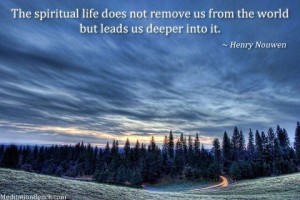The Gaia Theory calls into question many deeply ingrained scientific and cultural assumptions and challenges us to perceive our world in a new way. The Gaia Theory also illustrates how we are radically interconnected with all other livings beings on the planet, human and other, as well as with the non-living elements of the Earth. We humans carry on our lives seemingly independently of Gaia, but yet we exist within a larger living entity on which we depend for our lives. Read more


















